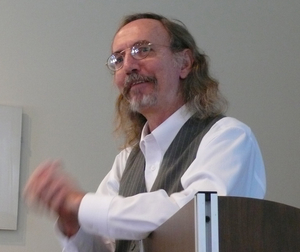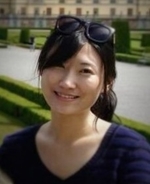Computational Social Philosophy Lab
The Computational Social Philosophy Lab (CSPL) is an interdisciplinary group of researchers that investigates questions of social epistemology, philosophy of science, and political philosophy using agent-based computer models with an eye toward empirical results. CSPL is structured roughly like a scientific lab group, but it involves several faculty in different disciplines (including philosophy, political science, psychology, and complex systems) at different institutions. Working together since 2009, our research has resulted in a number of insights about diversity and polarization in groups, the nature of expertise, how information moves in groups, how democracies can improve or hinder information flow, and how representative and direct democracies compare.
Recently, we’ve been thinking a lot about the dynamics of juries, the role of diversity in teams and larger groups, the dynamics of representational democracies, and how scientific institutions should be structured to better advance scientific aims. This research uses agent-based computer simulations to model diversity and expertise in group deliberation, and how group polarization can be produced, maintained, and destroyed by various mechanisms. Our research has implications for measuring and understanding the mechanisms of diversity and polarization in societies and small groups, the dynamics and optimization of small group discussions, and the roles of diversity and expertise in groups.
For more information, contact Prof. Daniel J. Singer (singerd@phil.upenn.edu) or Patrick Grim.
Sample CSPL Projects
-
Diversity and its Effects on Group Deliberation: Using a model of group deliberation where agents exchange reasons for beliefs, we investigate how diversity can affect group deliberation. In a recent paper, we show that diversity in juries can affect jury outcomes in four distinct ways. In a project in progress, we show that social diversity can have permanent epistemic benefits for groups, in contrast to much of the extant work on diversity in groups that focuses on functional and transient diversity.
-
Group Deliberation Dynamics: Using a model of theoretical group deliberation where agents exchange reasons for beliefs and premises in arguments in a simple non-monotonic logic, we ask how deliberation effects epistemic properties of the group (like who knows what and when) and how different properties might be optimized (asking, for example, whether a devil’s advocate is helpful or whether certain social network structures are conducive to good outcomes).
-
Rational Group Polarization: In “Rational Social and Political Polarization” (2018 in Philosophical Studies) we show that there is a way that epistemically rational groups of agents can polarize into subgroups that persistently disagree with each other even after sharing all of their reasons for their beliefs. We argue for this using a simple agent-based model of group discussions where agents must rationally manage memory limitations.
-
Epistemic Democracy and Information Aggregation: In “Representation in Models of Epistemic Democracy” (2020, Episteme), we use computational models to contrast the epistemic properties of voting-based group decision methods with those of Hong-and-Page-style ‘talking’ models of group problem solving when those models are supplemented with the representational systems that are characteristic of real democracies. We show that the Hong-and-Page model is resilient to representation in a way that the voting-based models are not. In “Diversity, Ability, and Expertise in Epistemic Communities” (2019, Philosophy of Science), we show that the Hong-Page ‘diversity trumps ability’ result does not occur with a particular natural conception of what expertise amounts to. In that paper and an online supplement, we also explore a number of other variations of the Hong-Page model. In work under review, we extend our research on representational systems to our model of rational group deliberation to shine light on the epistemic virtues and faults of representative democracies.
Selected Recent CSPL Publications
-
Daniel J. Singer. (2019) “Diversity, Not Randomness, Trumps Ability” Philosophy of Science
-
Patrick Grim, Aaron Bramson, Daniel J. Singer, William J. Berger, Jiin Jung, and Scott E. Page. (2020) “Representation in Models of Epistemic Democracy” Episteme
-
Patrick Grim, Daniel J. Singer, Aaron Bramson, Bennett Holman, Sean McGeehan, and William J. Berger. (2019) “Diversity, Ability, and Expertise in Epistemic Communities” Philosophy of Science
-
Daniel J. Singer, Aaron Bramson, Patrick Grim, Bennett Holman, Jiin Jung, Karen Kovaka, Anika Ranginani, and William J. Berger. (2018) “Rational Social and Political Polarization” Philosophical Studies
-
Aaron Bramson, Patrick Grim, Daniel J. Singer, William J. Berger, Steven Fisher, Graham Sack, and Carissa Flocken. (2017) “Understanding Polarization: Meanings, Measures, and Model Evaluation” Philosophy of Science
-
Aaron Bramson, Patrick Grim, Daniel J. Singer, Steven Fisher, William J. Berger, Graham Sack, and Carissa Flocken. (2016) “Disambiguation of Social Polarization Concepts and Measures” The Journal of Mathematical Sociology 40.02
-
Patrick Grim & Daniel J. Singer, Steven Fisher, Christopher Reade. (2015) “Germs, Genes, and Memes: Function and Fitness Dynamics on Information Networks” Philosophy of Science, Vol. 82, No. 2, p. 219-243
-
Patrick Grim & Daniel J. Singer, Steven Fisher, Aaron Bramson, William Berger, Christopher Reade, Carissa Flocken, and Adam Sales. (2013) “Scientific Networks on Data Landscapes: Question Difficulty, Epistemic Success, and Convergence” Episteme, Volume 10, Number 4, p. 441-464
-
Patrick Grim, Stephen B. Thomas, Steven Fisher, Christopher Reade, Daniel J. Singer, Mary A. Garza, Craig S. Fryer and Jamie Chatman. (2012) “Polarization and Belief Dynamics in the Black and White Communities: An Agent-Based Network Model from the Data” Artificial Life 13 p. 186-193
Members
 Prof. Daniel J. Singer is an Associate Professor at the University of Pennsylvania with a secondary appointment in Legal Studies and Business Ethics in the Wharton School of Business. He researchs epistemology (including traditional, formal, and social epistemology), the nature of normativity in ethics and epistemology, and social philosophy with an emphasis on diversity and polarization. He directs and organizes the CPSL. You can learn more about his research here and see his CV here.
Prof. Daniel J. Singer is an Associate Professor at the University of Pennsylvania with a secondary appointment in Legal Studies and Business Ethics in the Wharton School of Business. He researchs epistemology (including traditional, formal, and social epistemology), the nature of normativity in ethics and epistemology, and social philosophy with an emphasis on diversity and polarization. He directs and organizes the CPSL. You can learn more about his research here and see his CV here.
 Prof. Patrick Grim is Distinguished Teaching Professor of Philosophy Emeritus at Stony Brook University and Philosopher in Residence with the Center for Study of Complex Systems at the University of Michigan. He is author of The Incomplete Universe and co-author of Beyond Sets, Reflexivity: From Paradox to Consciousness, and The Philosophical Computer. He is editor of Mind and Consciousness: 5 Questions, and founding co-editor of over 35 volumes of the Philosopher’s Annual. Grim has produced four lecture series with the Teaching Company: Questions of Value, Philosophy of Mind, The Philosopher’s Toolkit and Mind-Body Philosophy. He publishes widely in scholarly journals across several disciplines, and is soon to step in as editor of the American Philosophical Quarterly.
Prof. Patrick Grim is Distinguished Teaching Professor of Philosophy Emeritus at Stony Brook University and Philosopher in Residence with the Center for Study of Complex Systems at the University of Michigan. He is author of The Incomplete Universe and co-author of Beyond Sets, Reflexivity: From Paradox to Consciousness, and The Philosophical Computer. He is editor of Mind and Consciousness: 5 Questions, and founding co-editor of over 35 volumes of the Philosopher’s Annual. Grim has produced four lecture series with the Teaching Company: Questions of Value, Philosophy of Mind, The Philosopher’s Toolkit and Mind-Body Philosophy. He publishes widely in scholarly journals across several disciplines, and is soon to step in as editor of the American Philosophical Quarterly.
 Dr. Aaron Bramson is a research scientist in the Lab for Symbolic Cognitive Development at the Riken Brain Science Institute in Japan and the Department of General Economics at the University of Gent in Belgium as well as an adjunct professor in the Dept of Software and Information Systems of UNCC in the US. He studies the foundations of complexity and specializes in the development of new methodologies and conceptual frameworks for the study of complexity itself and the systems that evoke it. Outside of research he is an avid cyclist, fashion designer, and musician.
Dr. Aaron Bramson is a research scientist in the Lab for Symbolic Cognitive Development at the Riken Brain Science Institute in Japan and the Department of General Economics at the University of Gent in Belgium as well as an adjunct professor in the Dept of Software and Information Systems of UNCC in the US. He studies the foundations of complexity and specializes in the development of new methodologies and conceptual frameworks for the study of complexity itself and the systems that evoke it. Outside of research he is an avid cyclist, fashion designer, and musician.
 Prof. William (Zev) Berger is an Assistant Professor (Career Track) in Political Economy and Moral Science at The University of Arizona. He is a political theorist that works at the intersection of political epistemology and political psychology. He employs a broad range of methods, including game theory, computational modeling, and experimental design and statistical modeling to weigh in on questions regarding not only how we think and feel, but also the upshot of those patterns for our normative aspirations for the world. He is one of a few, but growing number of political theorists who work both normatively and empirically. His research interests include democratic theory and epistemic democracy; political epistemology and psychology; social norms; trust, inequality, and polarization; and political sentimentality and affect. He also spends a fair amount of time running and trying to stay up on indie music. Don’t try to get coffee with him, though. He’s annoying about coffee.
Prof. William (Zev) Berger is an Assistant Professor (Career Track) in Political Economy and Moral Science at The University of Arizona. He is a political theorist that works at the intersection of political epistemology and political psychology. He employs a broad range of methods, including game theory, computational modeling, and experimental design and statistical modeling to weigh in on questions regarding not only how we think and feel, but also the upshot of those patterns for our normative aspirations for the world. He is one of a few, but growing number of political theorists who work both normatively and empirically. His research interests include democratic theory and epistemic democracy; political epistemology and psychology; social norms; trust, inequality, and polarization; and political sentimentality and affect. He also spends a fair amount of time running and trying to stay up on indie music. Don’t try to get coffee with him, though. He’s annoying about coffee.
 Prof. Bennett Holman is an Assistant Professor of History and Philosophy of Science at Underwood International College (Yonsei University, Seoul, South Korea). His work is at the intersection between medical and social epistemology. His current work is focused on articulating how scientific epistemology must be altered in areas of science that are heavily influenced by industry funding. His work brings the tools of history, philosophy, statistics, and formal modeling to bear on this question.
Prof. Bennett Holman is an Assistant Professor of History and Philosophy of Science at Underwood International College (Yonsei University, Seoul, South Korea). His work is at the intersection between medical and social epistemology. His current work is focused on articulating how scientific epistemology must be altered in areas of science that are heavily influenced by industry funding. His work brings the tools of history, philosophy, statistics, and formal modeling to bear on this question.
 Jiin Jung is a postdoctoral researcher in the Department of Psychology at New York University, where she is affiliated with the Motivation Lab. Her research focuses on the social psychology of belief dynamics. She studies how people construct beliefs about self, others, groups, and a society when facing uncertainty and disagreement, and how macro-level collective behaviors such as social change, diversity, and polarization emerge from these micro-level psychological processes in various social network structures. She particularly focuses on the role of minority dissent in these processes. To investigate multilevel causal links and iterations over time, she weaves together social psychology and other social science with a complex adaptive systems approach. She uses laboratory and field experiments, surveys, network analysis, and agent-based computational modeling. Learn more about Jiin here.
Jiin Jung is a postdoctoral researcher in the Department of Psychology at New York University, where she is affiliated with the Motivation Lab. Her research focuses on the social psychology of belief dynamics. She studies how people construct beliefs about self, others, groups, and a society when facing uncertainty and disagreement, and how macro-level collective behaviors such as social change, diversity, and polarization emerge from these micro-level psychological processes in various social network structures. She particularly focuses on the role of minority dissent in these processes. To investigate multilevel causal links and iterations over time, she weaves together social psychology and other social science with a complex adaptive systems approach. She uses laboratory and field experiments, surveys, network analysis, and agent-based computational modeling. Learn more about Jiin here.
Former Members
- Karen Kovaka
- Carissa Flocken
- Graham Sack
- Steven Fisher
- Christopher Reade
- Anika Ranginani